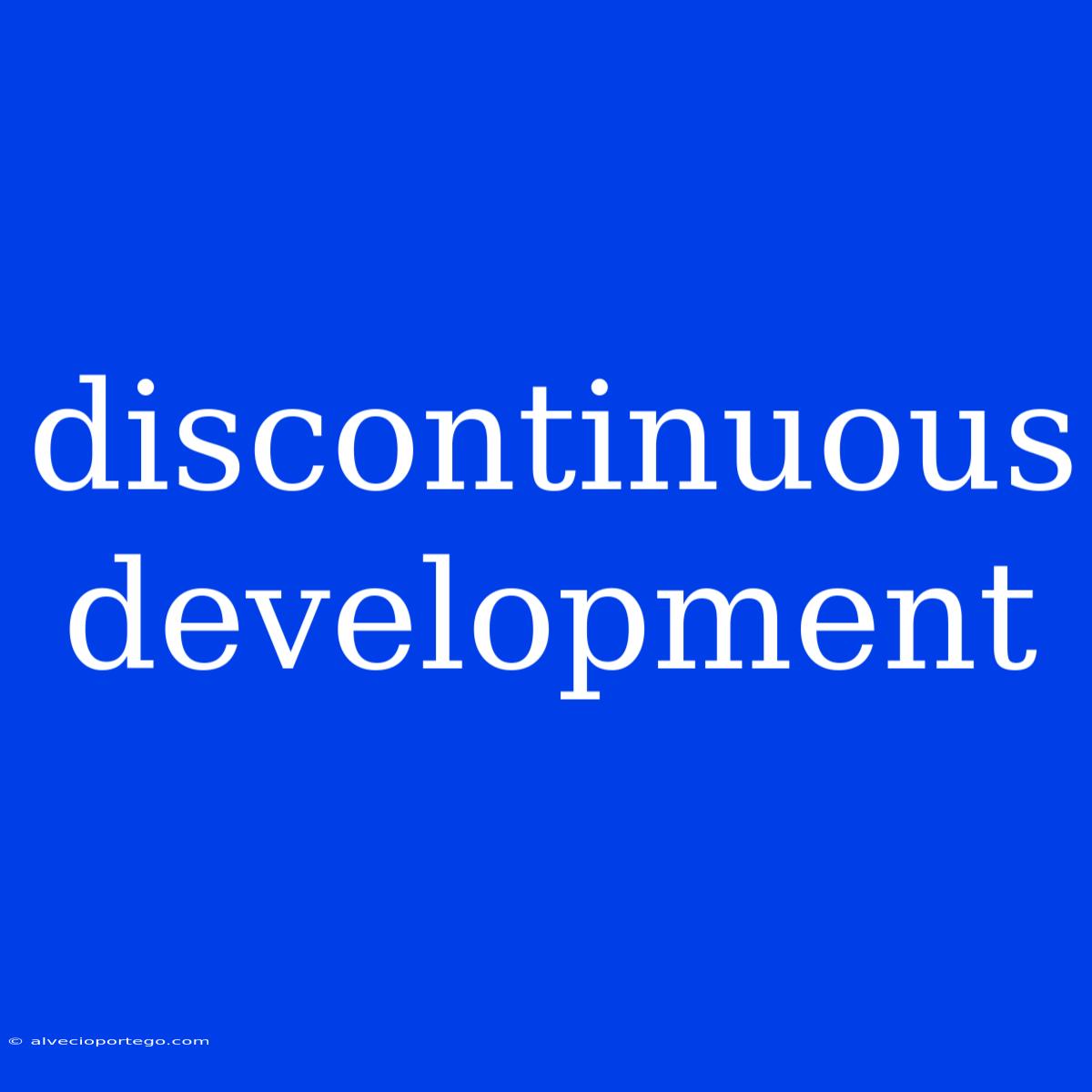Discontinuous Development: Leaps and Bounds in Growth
The journey of human development is often portrayed as a smooth, continuous climb, a gradual unfolding of skills and abilities. But what if development wasn't so linear? What if it involved significant leaps and bounds, punctuated by periods of relative stability? This is the essence of discontinuous development, a theory that proposes that development occurs in distinct stages, each characterized by qualitatively different ways of thinking, feeling, and behaving.
The Stages of Development: A Shift in Perspective
Discontinuous development finds its roots in the work of Jean Piaget, a renowned Swiss psychologist who revolutionized our understanding of child development. Piaget believed that children progress through a series of cognitive stages, each with its own unique cognitive structures and abilities.
Here are some of the key stages proposed by Piaget:
1. Sensorimotor Stage (0-2 years): Infants learn about the world through their senses and actions. They develop object permanence, the understanding that objects continue to exist even when out of sight.
2. Preoperational Stage (2-7 years): Children begin to use symbols and language, but their thinking is still egocentric, meaning they struggle to see things from another person's perspective.
3. Concrete Operational Stage (7-11 years): Children develop the ability to think logically about concrete objects and events. They can grasp concepts like conservation, the understanding that the amount of something remains the same even if its appearance changes.
4. Formal Operational Stage (11 years and beyond): Adolescents develop abstract reasoning skills, allowing them to think hypothetically and consider multiple perspectives. They can engage in deductive reasoning and solve complex problems.
Beyond Piaget: Expanding the Discontinuous Development Framework
While Piaget's theory laid the groundwork, the concept of discontinuous development has been further explored and expanded upon by other researchers. These frameworks, while acknowledging the existence of stages, emphasize different aspects of development:
- Erikson's Psychosocial Stages: This theory focuses on the development of personality and social skills, proposing that individuals navigate a series of psychosocial crises throughout their lifespan.
- Kohlberg's Theory of Moral Development: This theory examines how our understanding of right and wrong evolves through a series of stages. It suggests that moral reasoning progresses from egocentric concerns to a focus on universal principles.
Discontinuous Development: A Framework for Understanding Growth
Discontinuous development provides a useful lens for understanding the complexities of human development. It acknowledges that growth isn't always a smooth, linear process. Instead, it involves distinct periods of rapid change and qualitative shifts in abilities and understanding.
This framework can help us:
- Appreciate the uniqueness of each stage of development: By understanding the challenges and opportunities presented at different ages, we can create environments and interactions that support optimal growth.
- Recognize the importance of developmental milestones: These milestones serve as markers of progress and help us identify potential areas where additional support may be needed.
- Gain insights into individual differences: Not everyone progresses through stages at the same pace, and there's a natural variation in how individuals express developmental abilities.
However, it's important to acknowledge that discontinuous development is not a rigid framework. There's a degree of fluidity and overlap between stages, and individual experiences can influence the timing and pace of development. Nonetheless, the concept of discontinuous development provides a valuable tool for understanding the dynamic and transformative nature of human growth.

